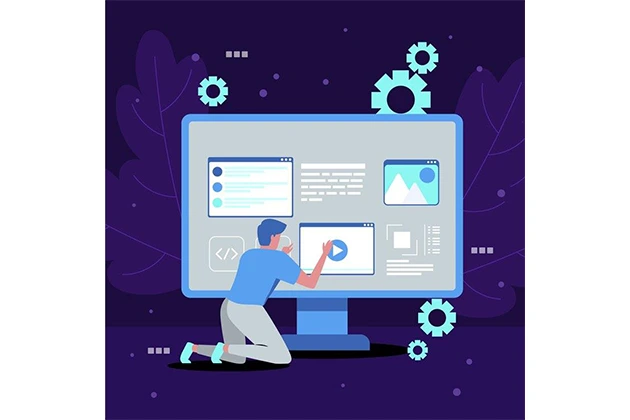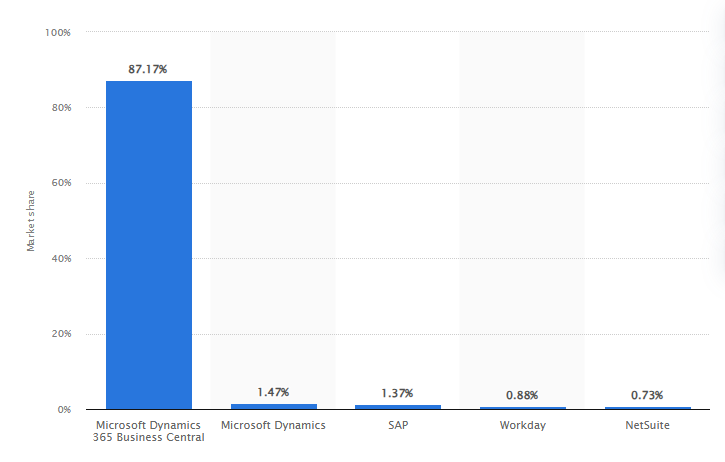Microsoft’s Dynamics 365 is a cloud-based business applications platform that combines CRM and ERP capabilities in a single solution. With Dynamics 365, companies can reduce process time, enhance customer engagement, and make data-driven decisions.
However, dynamics 365 is not a one-size-fits-all fix. To fully exploit its possibilities, the platform must be tailored and set, especially for every company. Here is where Dynamics 365 consultants find value.
The Role of Dynamics 365 Consultants
Professional Dynamics 365 consulting services are essential for organizations seeking to maximize their investment in Microsoft’s business platform. These specialists are called consultants who help organizations implement, customize, and extend Dynamics 365 according to their business needs and process requirements. Their core responsibilities include:
Comprehending Corporate Needs
First, consultants examine closely the processes, goals, problems, and needs of a business. This stage consists of conversations with important players to map areas for automation or development.
Planning the Solution Architecture
Consultants create an ideal Dynamics 365 solution architecture based on the obtained needs. This covers deciding which apps are required, how they will interact, and what changes will offer the best return on investment.
Configuring and Customizing the Platform
Consultants then customize Dynamics 365 apps, from sales and marketing to finance and operations, to match an organization’s processes. They also configure settings and create custom entities, fields, relationships, forms, views, dashboards, and workflows.
Integrating with Other Systems
Often, Dynamics 365 needs to integrate with other business systems like ERPs, eCommerce platforms, and custom applications. Consultants develop interfaces to enable seamless data flow across systems.
Migrating Data
Consultants migrate legacy data from previous systems so that historical information is available for analysis in Dynamics 365. Data migration is usually the most complex and time-intensive process.
Testing and Training
Before going live, consultants thoroughly test the customized solution and train end-users on how to use the new system to drive adoption. They also provide support during the initial post-implementation period.
Key Benefits of Customizing Dynamics 365
While Dynamics 365 provides extensive out-of-the-box capabilities, customizing the solution to fit specific business needs has several advantages, particularly when combined with custom mobile application development services to ensure seamless access across devices:
Increased Usability. Through custom forms, views, and dashboards, consultants can tailor Dynamics 365 to match users’ workflow and data needs, enhancing adoption across the organization.
Improved Process Efficiency. Consultants can fine-tune workflows, automate manual tasks, and streamline processes to boost productivity and operational efficiency.
Greater Flexibility. The platform accommodates business changes and supports new initiatives better as an organization grows by customizing entities, relationships, and integrations.
Competitive Differentiation. Deep platform customization allows for truly unique experiences and capabilities that can differentiate an organization in its market.
Higher ROI. While customization requires an upfront investment, the long-term productivity gains and revenue impact usually deliver a very high return on investment.
Approach to Customizing Dynamics 365
Experienced Dynamics 365 consultants follow a systematic approach to customize the platform for maximum impact:
Discovery. The project begins with discovery sessions where consultants work with key department heads to map processes and drill down to pain points, objectives, requirements, and desired outcomes.
Analysis. The next step is to analyze the collected inputs to find where there is a misalignment between Dynamics 365’s box capabilities and business requirements. This shows processes that need customization.
Design. Solutions to the identified gaps are designed by consultants. This includes listing the apps, entities, and integrations required and then wireframing out any custom elements.
Configuration. The consultants set up Dynamics 365 as per wireframes, such as security roles, sitemap, settings, record types, templates, etc.
Customization. The customized solution design is realized by developing custom apps, site maps, entities, fields, relationships, forms, views, dashboards, workflows, and code extensions.
Data Migration. Custom import tools and automation do the job of migrating legacy data to Dynamics 365 so that we can continue to use historical information on the new system.
Testing. A customized solution is tested rigorously to ensure it works according to all the business scenarios before deployment.
Training & Support. Live consultants train end users to customize the solution and provide ongoing support to adopt the new solution seamlessly.
Types of Dynamics 365 Customizations
Dynamics 365 is highly flexible, allowing consultants to customize the platform extensively in the following ways:
Application Customization. Consultants can customize Dynamics 365 apps themselves by tweaking forms, views, sitemaps, navigation, and business logic with no code configuration or extensions.
Code Extensions. For advanced custom app capabilities, consultants leverage the Dynamics 365 extensibility framework to add business logic through Web Resources, Custom ASPX Pages, and Azure Extensions.
Custom Entities. Where out-of-the-box entities do not meet requirements, consultants can model new custom entities and link them to existing entities via relationships.
Custom Fields & Options. Additional data capture needs can be met by adding custom text, numeric, date/time picklist, checkbox, currency, image, file type, and other specialty fields.
Business Process Flows. Consultants can model custom multi-step business workflows to standardize processes through guided data entry, branching logic, dynamic stages, and process automation.
Integrations. Using Dynamics 365 APIs, consultants create unique interfaces to other systems, including ERPs, eCommerce, and databases, thereby attaining end-to-end automation.
Power Platform. The Power Platform lets consultants quickly create bespoke Dynamics 365 apps, processes, chatbots, Power BI reports, and RPA automation fit for corporate needs.
Azure Extensions. For complex integration scenarios, Azure extensions enable running custom C# code as a service to manipulate Dynamics 365 data via APIs for added flexibility.
Involving a Consultant
As of September 2023, Microsoft Dynamics 365 Business Central rules the worldwide enterprise resource planning (ERP) software market with over 87% and over two million domains.
However, while Dynamics 365 customizing may be somewhat complicated, trying these projects without thorough platform knowledge can cause failure. Using a seasoned Dynamics 365 expert helps your company realize the whole potential of the tool.
The ideal consultant does more than simply apply Dynamics 365. By means of a keen awareness of corporate objectives and Dynamics 365 features, consultants may create quite customized solutions to get a competitive edge.
Consulters do, however, have different skill sets and methods. As assessing consultants, be sure they have:
Proven Dynamics Expertise. You want to look for consultants with 5+ years of experience delivering successful Dynamics 365 solutions of the same scope as your project. Make sure they have their Microsoft certifications.
Vertical Knowledge. Choose consultants who have experience with your industry vertical and processes so that you can minimize the learning curve.
Technical Chops. Assess their technical capabilities across Dynamics 365 configuration and customization, as well as integration and migration proficiency.
Strategic Mindset. The ideal consultant should think strategically about how Dynamics 365 can create a step-change business impact rather than just checking boxes.
Great Communicator. Communication is key to driving alignment and adoption. Assess the consultant’s ability to explain complex concepts simply to both business and technical teams.
Methodical Approach. Confirm that the consultant follows a structured methodology to guide the high-stakes Dynamics 365 project smoothly from start to finish.
Conclusion
To develop a customized solution for Dynamics 365, you need a good amount of Dynamics 365 expertise and a strategic view toward developing a solution that will fulfill an organization’s needs and processes. Using skilled Dynamics consultants to customize the platform, companies can make the platform more usable, efficient, innovative, and competitively differentiated.
Customization means upfront investment, but the long-term productivity and performance gains are well worth it, and partners like Microsoft are there to help companies every step of the way. Companies are enabled with a customized Dynamics 365 solution that addresses their business needs, transforms customer engagement, streamlines operations, and outpaces the competition.












